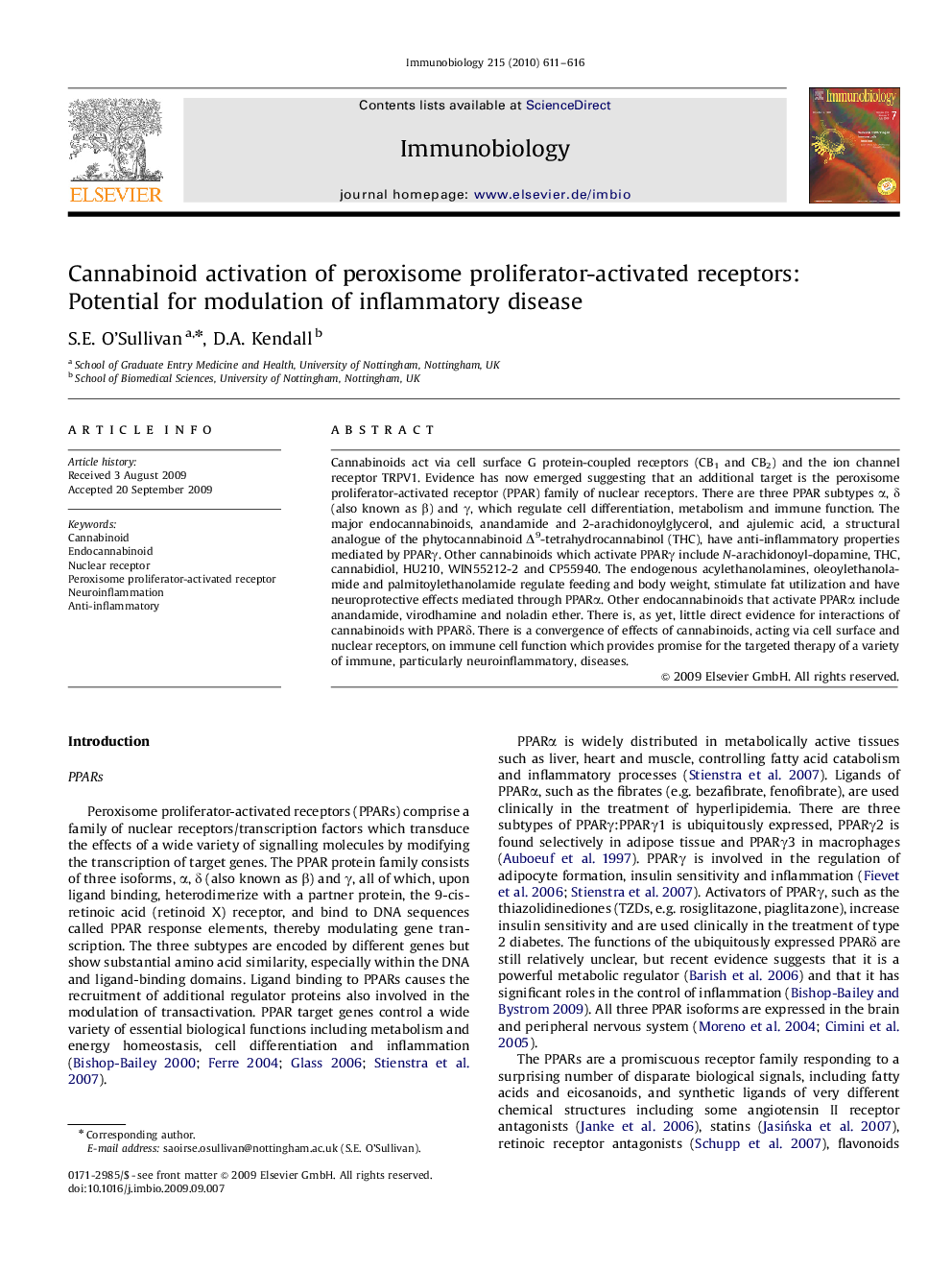| کد مقاله | کد نشریه | سال انتشار | مقاله انگلیسی | نسخه تمام متن |
|---|---|---|---|---|
| 2183391 | 1095562 | 2010 | 6 صفحه PDF | دانلود رایگان |

Cannabinoids act via cell surface G protein-coupled receptors (CB1 and CB2) and the ion channel receptor TRPV1. Evidence has now emerged suggesting that an additional target is the peroxisome proliferator-activated receptor (PPAR) family of nuclear receptors. There are three PPAR subtypes α, δ (also known as β) and γ, which regulate cell differentiation, metabolism and immune function. The major endocannabinoids, anandamide and 2-arachidonoylglycerol, and ajulemic acid, a structural analogue of the phytocannabinoid Δ9-tetrahydrocannabinol (THC), have anti-inflammatory properties mediated by PPARγ. Other cannabinoids which activate PPARγ include N-arachidonoyl-dopamine, THC, cannabidiol, HU210, WIN55212-2 and CP55940. The endogenous acylethanolamines, oleoylethanolamide and palmitoylethanolamide regulate feeding and body weight, stimulate fat utilization and have neuroprotective effects mediated through PPARα. Other endocannabinoids that activate PPARα include anandamide, virodhamine and noladin ether. There is, as yet, little direct evidence for interactions of cannabinoids with PPARδ. There is a convergence of effects of cannabinoids, acting via cell surface and nuclear receptors, on immune cell function which provides promise for the targeted therapy of a variety of immune, particularly neuroinflammatory, diseases.
Journal: Immunobiology - Volume 215, Issue 8, August 2010, Pages 611–616